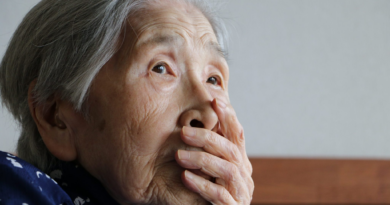Temu’s billionaire founder lost his title as China’s richest person just 20 days after winning it
Temu’s moment as a stiff competitor to Amazon and Shein came and passed—and so did the founder’s reign as the richest man in China.
PDD Holdings, the parent company of the fast-growing Temu shopping platform, had a terrible, horrible, no-good, very bad Monday, losing a whopping $50 billion in market value after the e-commerce giant posted disappointing quarterly revenue. This consequently knocked Colin Huang, founder of Pinduoduo (whose parent company is also PDD Holdings), off his pedestal as the wealthiest person in China just weeks after he earned that title.
Huang, 44, became China’s richest person on Aug. 8, boasting impressive results from Pinduoduo, a popular gamified online marketplace that connects buyers and sellers in China. It’s also the company behind discount shopping website Temu, which has grown in popularity in the U.S. during the past couple of years—although it’s facing intense scrutiny by governments for using import trade loopholes and for the quality and origins of its products. While the company is technically headquartered in Ireland, the majority of Temu’s employees work in China.
After PDD Holdings tanked earlier this week, Huang’s net worth plummeted a staggering $14.1 billion to $33.5 billion, the Bloomberg Billionaires Index shows. That makes him the fourth-wealthiest person in China and the 48th wealthiest person in the world, the index showed at the time of Fortune’s publication. Before its earnings call, which turned out to be a major letdown, Pinduoduo had a market cap of more than $190 billion, higher than Uber ($150.5 billion) or Sony ($119 billion). As of Wednesday, the company’s market cap had fallen to $124.4 billion.
“We are seeing many new challenges ahead from changing consumer demand, intensifying competition, and uncertainties in [the] global environment,” Lei Chen, co-CEO of PDD Holdings, said during the earnings call. “As a result, we will enter a new phase of high-quality development that calls for increased investments. Our profitability will [be affected] as a result.”
Who is Colin Huang and how did he become the richest man in China?
In his early days, Huang earned his master’s in computer science from the University of Wisconsin and interned at Microsoft in both Beijing and Seattle before beginning his career at Google in the U.S. in 2004. This was when Google really started taking off.
“The operating profits and the number of [employees] grew rapidly,” Huang wrote in a now-deleted blog post, according to Business Insider. “The operating profits and the number of [employees] grew rapidly” while his bank account balance “suddenly grew a lot too.”
This is when Huang really started to get a taste for being rich.
“It was a very good experience for me to go from a very poor background to all of a sudden [being among those who had] become extremely rich,” Huang told Forbes in a 2018 interview. “It’s exciting, but sometimes it also has some not so good side effects.”
But at his core, Huang is a serial entrepreneur, having founded e-commerce platform Ouku.com in 2007. Pinduoduo claims Huang also founded online games company Xinyoudi in 2011, although no company with that name has ever existed, according to the Financial Times. The publication in 2020 referred to Huang as “Shanghai’s secretive internet king” who set up a “wide network of other e-commerce and gaming groups.”
Huang, most importantly, founded PDD Holdings. He stepped down as chairman in March 2021, but still is a major shareholder. In September 2022, the company launched Temu to compete with Shein, led by fellow Chinese billionaire Sky Xu. In 2012, Xu founded Shein, which morphed into a fast-fashion sensation, particularly for younger generations.
While Huang fell from the pinnacle of wealth in his native country, he’s frankly quite used to being rich. In fact, Huang, a factory worker’s son, became China’s youngest self-made billionaire back in 2018.
“I got to learn how to manage [relationships] and accepted the status of being rich, before [I] got rich,” Huang told Forbes.
In our new special issue, a Wall Street legend gets a radical makeover, a tale of crypto iniquity, misbehaving poultry royalty, and more.
Read the stories.


